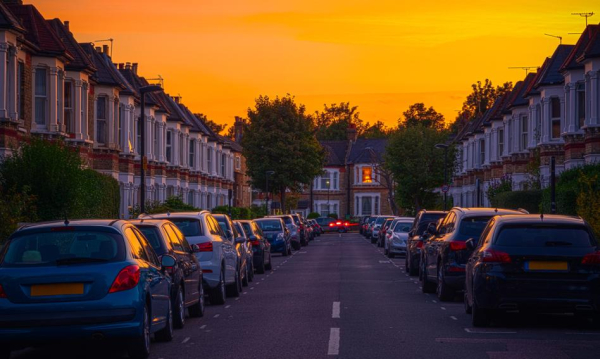The new—and already highly controversial—property tax, which will replace stamp duty, will hit hardest-working individuals who, after years of hard work, were able to afford to buy their own homes. Home Secretary Rachel Reeves is facing fierce criticism for the proposed new tax, which would apply to houses and apartments worth over £500,000.

The Labour Party has so far failed to plug the (almost black) hole in the British budget. According to estimates, the fiscal fix would require around £50 billion. At the same time, during the election campaign, they promised that under no circumstances would they raise the finances of working people, ruling out increases in social security contributions, income tax, or VAT, among other things. However, there was no mention of a property tax, a topic the government is targeting.
According to The Guardian, owners of homes worth over £500,000 would have to pay a “proportional property tax” each year . It's structured similarly to a land registry tax. How would this work in practice?
Currently, property purchases over £125,000 only pay stamp duty. The rates are:
- 2% on properties worth £125,000,
- 5% on £250,001,
- 10% of £925,001,
- 12% on £1.5 million.
A report prepared for the government by the think tank Onward suggests changing stamp duty rates to 0.54% on properties worth over £500,000, plus a surcharge of 0.278% on properties worth over £1 million. Separately, owners would also be charged an annual tax of 0.44% on homes worth up to £500,000, with a minimum rate of £800 per household.

There are also reports that the new tax would apply only to those who wish to buy/sell and purchase a new property . Those who remain in their “old” home would still be subject to the previous arrangements. However, experts believe this solution is unsatisfactory, as it would discourage future buyers. Yet the government's stated goal was quite the opposite: it was intended to encourage Britons to move to smaller homes if they couldn't afford to maintain a larger one.
All these ideas, instead of stabilizing the British real estate market, only make it even more volatile. It's no wonder the opposition is vociferous. “Keir Starmer and Rachel Reeves promised not to raise taxes on working people, only to then introduce an employment levy that would cost the average British household £3,500. Now, after failed welfare reforms and disastrous management, they're preparing to repeat the same,” emphasizes Mel Stride, Shadow Chancellor of the Exchequer.
As James Browne, senior economic policy advisor at the Tony Blair Institute, told the Daily Mail, although replacing stamp duty with a tax makes economic sense, it would be politically difficult.
This will primarily affect people who own assets, such as real estate, but have too much cash on hand. If the tax were to come into effect, they would have to pay a higher tax. In the second option, they won't vacate their property and move to a smaller one, because then the tax would “catch up on them.” It's both bad and bad, he adds.
ed. aw






